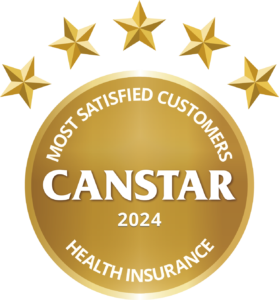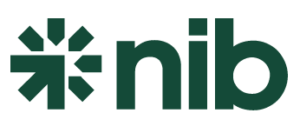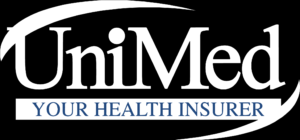Compare health insurance providers in New Zealand at Canstar. ASB, AA Health Insurance, AIA, NIB, Partners Life, Southern Cross and UniMed were compared on Overall Satisfaction, Communication, Comprehensiveness of Cover, Cost, Customer Service and Value for Money.

ASB Health Insurance rated No.1 by Kiwi health insurance consumers for delivering total customer satisfaction.
Our review compares health insurance providers on customer satisfaction, so you can discover what other Kiwis think about our compared health insurance providers before you sign up for a policy. Think of it like asking hundreds of your closest friends and family members which health insurance providers they think deliver the best heath cover and value for money.
Canstar surveyed 1362 Kiwis who currently pay for health insurance cover and asked them for their feedback on their choice of health insurance provider.
Respondents rate their satisfaction with their health insurance providers from zero to ten, where zero is extremely dissatisfied and ten is extremely satisfied. Brand satisfaction was rated by respondents on the following criteria:
The winning health insurance provider is the one that receives the highest Overall Satisfaction rating once all the scores from the Overall Satisfaction criteria are combined and averaged.
Brands must have received at least 30 responses to be included, so not all brands available in the market have been compared in this survey. The brands rated in this survey are listed below in order of best overall satisfaction.
Find more information on our Most Satisfied Customer methodology.

 Ratings Results
Ratings ResultsCongratulation to ASB Health Insurance, the winner of Canstar’s Most Satisfied Customers | Health Insurance Award 2024.
ASB Health Insurance’s award win comes on the back of a great set of ratings from the hundreds of health insurance customers in our survey. Across all six award categories, from Overall Satisfaction to Value for Money, ASB Health Insurance earns top 5-Star ratings from its many contented customers.
ASB offers two policy options:
Includes cover for surgery and hospitalisation, cancer treatment and supporting diagnostic procedures:
Extensive insurance that includes cover for specialists and tests and lifestyle benefits. Has all the features of ASB Private Health cover, plus:
 AA Health Insurance
AA Health InsuranceAA Health Insurance offers three plans, each providing different levels of cover:
On all plans, a 5% AA Member discount is available when you provide a valid AA Membership number for you or someone named on your policy.
The most affordable option, Everyday health insurance cover includes:
Under the Everyday policy, AA will reimburse you 60% of the cost of the above expenses up to $900 (benefit limits apply).
You can take out Everyday Cover by itself, or in combination with Private Hospital, or Private Hospital and Specialist, to cover both the everyday medical expenses and the bigger stuff too.
This covers diagnostics, surgeries and treatment in private hospitals, including:
There is also the option to add non-PHARMAC Plus, which subsidises the cost of non-PHARMAC-funded medication.
Covers everything in Private Hospital cover, plus:
Also comes with the option to add non-PHARMAC plus, which subsidises the cost of non-PHARMAC-funded medication.

AIA offers two health insurance policies:
Comprehensive insurance for a wide range of medical conditions, covering costs for specialist consultations, diagnostic imaging and testing, hospitalisation and surgeries:
Wide range of optional benefits available.
AIA Cancer Care is specialised health insurance that helps cover costs for cancer diagnosis, treatment and recovery.
Policy details:

nib rounds out our ratings tables, and earns predominantly 3-Star ratings. It earns it best customer score for Comprehensiveness of Cover, and its lowest score, just 2 Stars, for Cost.
nib offers its customers a choice of either Standard or Premium cover across the following plans:
nib’s Everyday plans are designed to contribute towards your day-to-day healthcare costs:
A combination of the cover benefits of the Everyday and Hospital Plans.

Partners Life offers two health insurance policies:
Funds quick access to, and a choice of, treatment in the private medical sector, meaning you can get the best care without having to wait for the public system. Covers certain surgical treatments, non-surgical private hospital costs, treatment costs for serious illness and other coverage, for example Medsafe-approved drug costs associated with covered treatments, regardless of whether they’re PHARMAC-subsidised or not.
These products are exclusive to Partners Life, and take a different approach to claims. They pay a small, defined amount of money if you suffer a specific health event, or require a specific medical treatment, for example payment upon breaking a bone.

Southern Cross offers four health insurance plans, plus two-shared cover plans that offer a contribution to medical expenses in certain situations:
Shares the costs of healthcare between the customer and the insurer. Offers customers a contribution towards cancer care, surgical procedure and consultations, diagnostic imaging, tests, recovery and day-to-day healthcare.
Offers customers part-payment for healthcare received, providing 80% of the actual cost of the healthcare service. This policy proves a contribution towards cancer care, surgical procedures and consultations, diagnostic imaging, tests and some recovery. Optional $500 excess.
A day-to-day health plan covering 75% of medical costs, including consultations with a GP, dentist, optometrist, physiotherapist, dietitian/nutritionist, chiropractor and more for a maximum combined value of $1650 per year.
A broad surgical and healthcare plan that reimburses 100% of expenses, up to the specified policy limit, for eligible healthcare services, including:
Optional excess limits available.
A comprehensive surgical and healthcare plan that reimburses customers for 100% of expenses for eligible healthcare services. This plan includes:
Optional excess limits available.
A premium surgical, healthcare and day-to-day plan, the Ultra Care health insurance policy offers 100% reimbursement of expenses for eligible healthcare services. This policy includes coverage for pre-existing health conditions and includes:

UniMed offers three different health insurance policies:
Covers a wide range of health costs, including 80% of eligible surgery costs. Offers a contribution towards some everyday health costs, as well as specialist consultations and diagnostic testing. Benefits include:
Provides customers with a choice of 50% or 80% reimbursement across everyday medical costs up to $10,000 each year. Designed to help manage regular health bills, it includes:
This health insurance policy does not include cover for surgery.
UniMed’s most extensive plan. Covers unexpected illnesses requiring surgery or hospitalisation. Some benefits include:
The plan offers optional benefits that expand to include natural healthcare, dental work and optometry.
Not all brands in the market qualify for our ratings (based on minimum survey sample size), but that doesn’t mean they’re not worth considering. Here is another brand to check out before making a purchase decision:

Accuro is a New Zealand-owned, not for profit insurer that has over 30,000 members. It offers two health insurance plans:
Accuro’s basic, and cheapest, health plan includes cover for:
SmartCare+ is Accuro’s premium health insurance product, it includes cover for:
Optional extras on both plans include: specialist plan, dental and optical plan, GP plan, natural health plan.
 About the author of this page
About the author of this pageThis report was written by Canstar’s Editor, Bruce Pitchers. Bruce has three decades’ experience as a journalist and has worked for major media companies in the UK and Australasia, including ACP, Bauer Media Group, Fairfax, Pacific Magazines, News Corp and TVNZ. Prior to Canstar, he worked as a freelancer, including for The Australian Financial Review, the NZ Financial Markets Authority, and for real estate companies on both sides of the Tasman.

Health Insurance - December 12th
Most regular surgical and healthcare insurance policies provide only limited cover for cancer treatments and drugs. Such cover is often not enough to pay for cancer drugs that are not funded by Pharmac, which can cost…
– Read more
Health Insurance - November 18th
What is private health insurance? Private health insurance is a type of insurance coverage that individuals or families can purchase to help cover the costs of medical expenses and services that may not be fully covered…
– Read moreNew Zealand’s health and disability system is mainly funded from general taxation. The Ministry of Health allocates more than three quarters of the public funds it manages via Vote Health to District Health Boards (DHBs), who then use this to purchase and provide public health services.
However, the government is currently in the process of making substantial changes to the way the health system is structured, and how it operates. This includes the disestablishment of the DHBs, and the creation of Health NZ and a Māori Health Authority, by July 2022.
Other funding sources include the Accident Compensation Corporation (ACC) and other government agencies. But the public health system does not cover all healthcare and private health insurance covers a wider variety of healthcare options.
More than 1.4 million New Zealanders have private health insurance, according to the Health Funds Association of New Zealand. Having private health insurance means New Zealanders can access treatment without the often-lengthy wait of the public health system. It also gives the policy holder some more control over their healthcare, such as the option of getting cover for extra treatments, such as dental, optical, chiropractic or physiotherapy.
These are a general explanation of the meaning of terms used in relation to health insurance.
Policy wording may use different terms and you should read the terms and conditions of the relevant policy to understand the inclusions and exclusions of that policy.
Annual limit: The maximum benefit payable for a particular service within a 12-month period.
Benefit: The dollar amount paid to you by your health fund when you make a claim with your hospital cover or extras cover.
Benefit limitation period: Benefit limitation periods are a period of time after taking out your health insurance policy where you will only be able to claim a restricted amount of benefit for nominated conditions. This time period usually commences after standard waiting periods have been served.
Claim: When you request that your health funds contributes to the cost of health services provided by a hospital, doctor, or other healthcare provider. If you have already paid the invoice in full, you can make a claim with your health fund afterwards and they will reimburse you with some or all of the cost via a direct payment, such as electronic funds transfer. If the invoice has not yet been paid, the health fund will pay this invoice in full, and then request that you pay them the balance owing (the difference between the actual bill and the amount the health fund will cover).
Compensation or Damages: Fund benefits are not payable when compensation and/or damages may be claimed from another source, such as ACC.
Default Benefits: The minimum level of benefits private health insurers must pay, as set down by the government. These cover claims for treatment provided in public hospitals, non-contracted private hospitals and day surgeries.
Elective surgery: Surgical treatment of a condition that, according to your doctor, does not require immediate attention. Elective surgery waiting lists are one reason why it’s great having health insurance.
Excess: Much like with a car insurance policy, your health insurance policy charges an excess when you make a claim. It is an amount of money you agree to pay for hospital admission or medical services before you can claim anything back from your health fund. An excess does not apply to extras cover.
Exclusions: Any medical procedure, treatment, or health service that is not covered by your policy. You cannot make a claim for these items with your health insurance.
Pre-existing condition: An ailment, illness, or health condition is considered to be pre-existing if, in the opinion of a doctor appointed by the health fund, it existed at any time during the six months prior to the member joining a hospital cover or upgrading to a higher level of cover. Health funds can impose a maximum 12-month waiting period for hospital treatment for ailments, illnesses, or conditions that are considered to be pre-existing.
Premium: The annual payment or monthly payment (or other regular periodic payment) that a policyholder makes to a health insurance company to pay for having health cover.
Restriction: Some hospital cover policies have procedures that are restricted, meaning they will only pay the Public Hospital Benefit for that procedure. Policyholders would pay a considerable gap fee if they chose to be treated for a restricted procedure.
Waiting periods: The time you need to wait after buying health insurance, before you can start claiming benefits on the policy.
Like the peace of mind a health insurance policy provides: 60%
Think health insurance is becoming too expensive: 48%
Happy with the claims process of provider: 45%
Stay with current provider due to pre-existing conditions: 27%
Have health insurance for their children: 25%
Will sacrifice spending in other areas to keep health care policy: 24%
Can only afford surgery and specialist policy: 21%
Have reduced or changed cover as premiums have risen: 16%
Have used health insurance for serious illness: 15%
Canstar surveyed 5069 New Zealand consumers across a range of categories to measure and track customer satisfaction, via ISO 26362 accredited research panels managed by Qualtrics. The outcomes reported are the results from respondents who have health insurance. In this case, 1362 New Zealanders. Brands must have received at least 30 responses to be included. Results are comparative and it should be noted that brands receiving three stars have still achieved a satisfaction measure of at least six out of 10. Not all brands available in the market have been compared in this survey. The ratings table is first sorted by star ratings and then by mean overall satisfaction. A rated brand may receive a ‘N/A’ (Not Applicable) rating if it does not receive the minimum number of responses for that criterion.
The past winners from Canstar’s Health Insurance ratings: